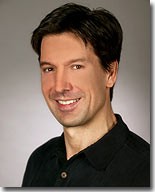Microsoft Big Brains: Mark Russinovich

Just before retiring from day-to-day responsibilities at Microsoft, Chairman Bill Gates said that he expected Microsoft's 22 Technical Fellows to get a lot more publicly visible -- now that they wouldn't be living in his shadow. While some of the Microsoft fellows already have been active on the public-speaking circuit, many of them are not widely known outside the company.
Last year I launched this series -- "Microsoft Big Brains" -- to help remedy that shortcoming. In the coming weeks, I am hoping to profile as many of the company's tech fellows as to whom I can get access.
Microsoft's Technical Fellows came to the company via a variety of different routes. Some of them run divisions inside the company; some focus on particularly thorny technical issues that may span a variety of product units. Regardless of where they sit in the organization, the fellows all have been charged with helping Microsoft craft its next-gen products and strategies, much the way that Gates used his regular "Think Weeks" to prioritize what Microsoft needed to do next.

Technical Fellow Mark Russinovich knows Windows. And since joining Microsoft, he's made it his business to help herd the cats inside the company who have anything to do with Windows' development and futures.
Russinovich currently reports to Jon DeVaan, the head of Microsoft's Core Operating Systems Division. He is more of an "individual contributor" tech fellow than one who leads teams. He does a lot of speaking, blogging, article and code writing, rather than managing. (In all his "free time," he's working on the fifth edition of Windows Internals, due out in May 2009.
Russinovich takes pride in being part of a core group of senior architects at the company working on architectural best practices. The group is working on an architectural "constitution" which outlines the layers in Windows (along with the functionality in each layer) and guidance on application-programming interface (API) design.
"We ask teams to come in and make sure there's no overlap -- to make sure we're not duplicating things," Russinovich explained.
Russinovich characterized his role as helping to facilitate "dialog and cross divisional cooperation" around Windows. I asked for further details as to what this involves and how it will show up in future Windows releases, but he said he was unable to share more because the particulars are NDA.
(Russinovich is said to be the leader of the still-unannounced Microsoft MinSafe project, which is considered by some of my sources to be a milestone on the way to Midori, an incubation project that could ultimately become Microsoft's next-generation distributed, multicore operating system.)
What can Russinovich discuss, in terms of his near- and longer-term hot buttons?
He is involved in the development of MinWin, the Windows core that is part of Windows 7 (and will be in future iterations of Windows). He is always thinking about Windows' evolution, he said. And he's continuing to work on the Windows Sysinternals tools, both in terms of enhancing existing utilities and creating new ones, like a new memory footprint analysis tool for developers that he's been working on. (Russinovich called his Sysinternals work "a hobby" for him.)
"There's a lot of work to do in the Windows 8 timeframe," Russinovich said. "We're thinking now about what steps we should be taking."
For all of the “Microsoft Big Brains” profiles, check outthe Big Brains page.